The Writing University conducts is a series of interviews with writers while they are in Iowa City participating in the International Writing Program's fall residency. We sit down (sometimes remotely) with authors to ask about their work, their process and their descriptions of home.
Today we are talking with Stuart Lau 劉偉成, a poet, essayist and critic from Hong Kong.
1. Do you have a plan or project in. mind for your time at the residency?
Certainly, there are a lot of writing proposals buried in heart, may be this is the common “symptom” of the writers joining IWP. They can be roughly categorized into two.
First, those projects originally generated but fail to deploy owing to the obliteration of routine works. I hope that I can get a free aura to realize them during the three-month residency, they are:
- a series of “poetic prose” titled as “Growth with the Wind” for future publication , so as to show the inspiration brought by the canon of this genre, “Wild Grass” (《野草》) of Luxun (魯迅) which is one of the cynosures in my Ph.D. thesis I am striving for.
- A series of topographical writing which can be regarded as the outcome triggered by the experiences of being the guides of various local literature city walks. I have been the guide of the literature city walk in February at Pokfulam village which is the oldest village within the territory, however I fail to squeeze time to finish the relevant topographical writing, hoping that I can finish it during my residency.
- Two long symbolic poems twin the themes of love and hate of Hong Kong culture.
Second, the add-hot pieces especially targeted for the 50th anniversary of IWP, several literature magazines requested me to hand them a piece of feature writing respectively, ushering their readers to know more about this renowned program. I am now bracing up myself to think of generating different contents on the same issue.
2. What does your daily practice look like for your writing? Do you have a certain time when you write? Any specific routine?
My writing practice is quite traditional or frankly speaking is old- fashioned, since I fail to flow out ideas when facing computer interfaces, the first drafts of my creative works usually are hand-written. I have already stored up many used scrape books for so many years.
Besides, when I travel to other cities, I choose to draw instead of just taking digital photos as usual practice. Through drawing, I can remember concretely every contour and proportion of the scenery which I certainly will miss out by just clicking the camera shutter.
I have never received any formal training on drawing and my works are certainly not up to an accomplished level but they simply act as an accumulated record of observations, ushering me to integrate different impressions for my thematic writings. It is better to show you some instances for further articulation.
I have never received any formal training on drawing and my works are certainly not up to an accomplished level but they simply act as an accumulated records of observations, ushering me to integrate different impressions for my thematic writings. It is better to show you some instances for further articulation.
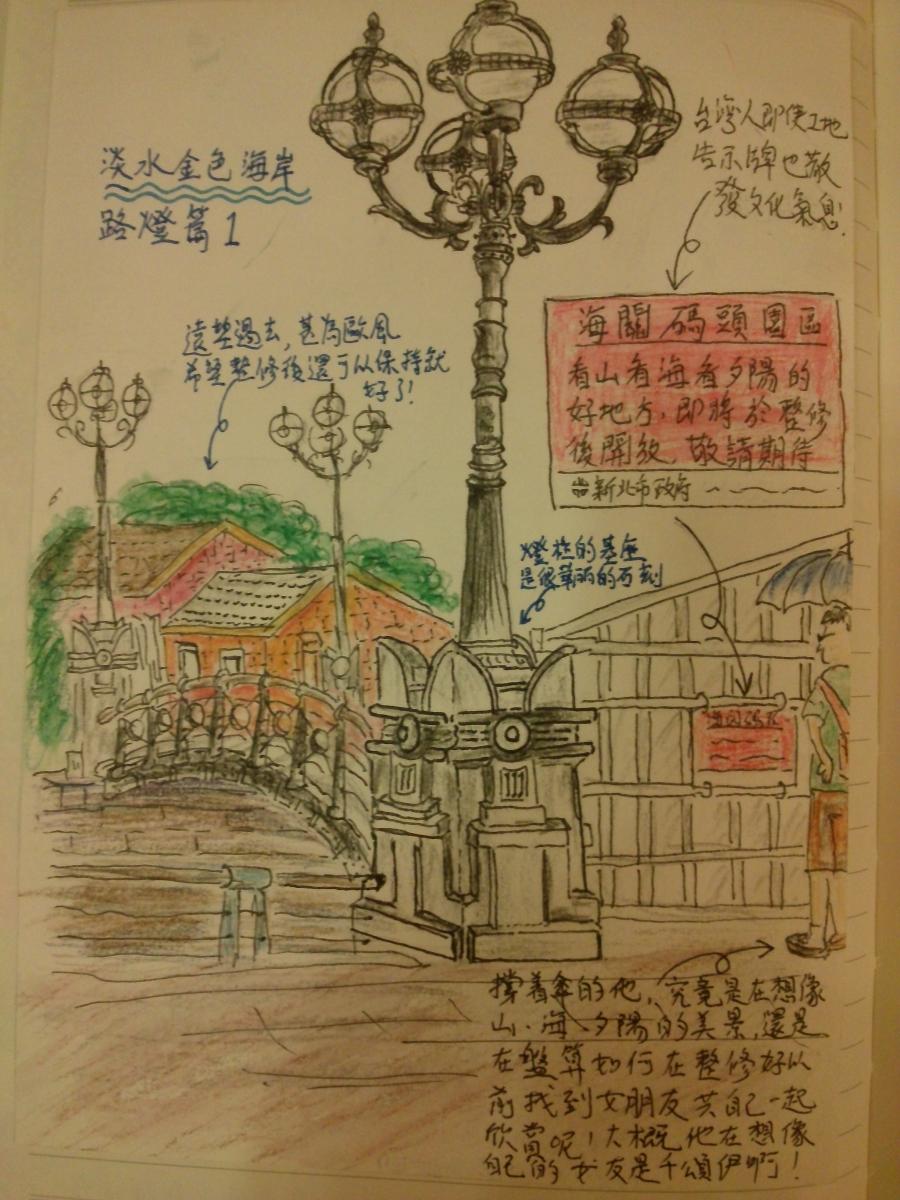
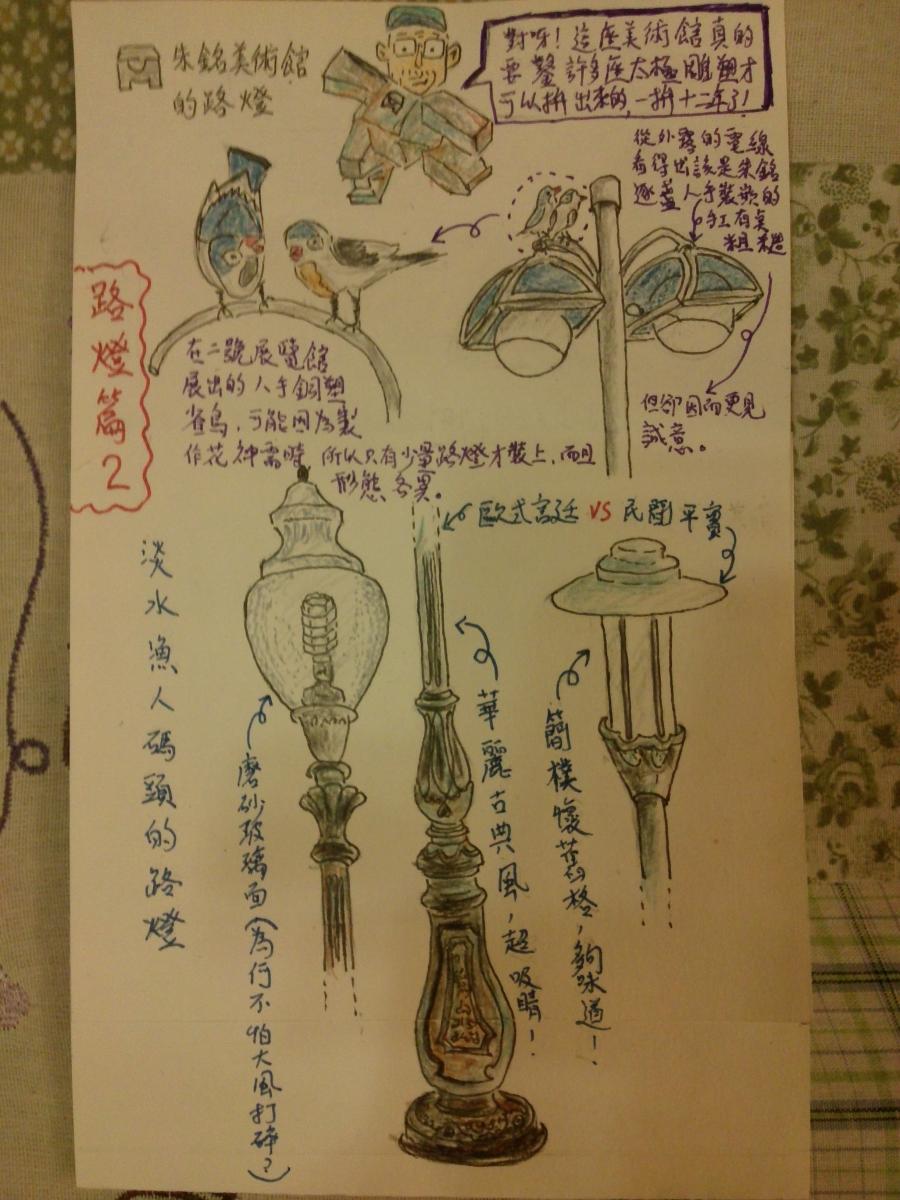
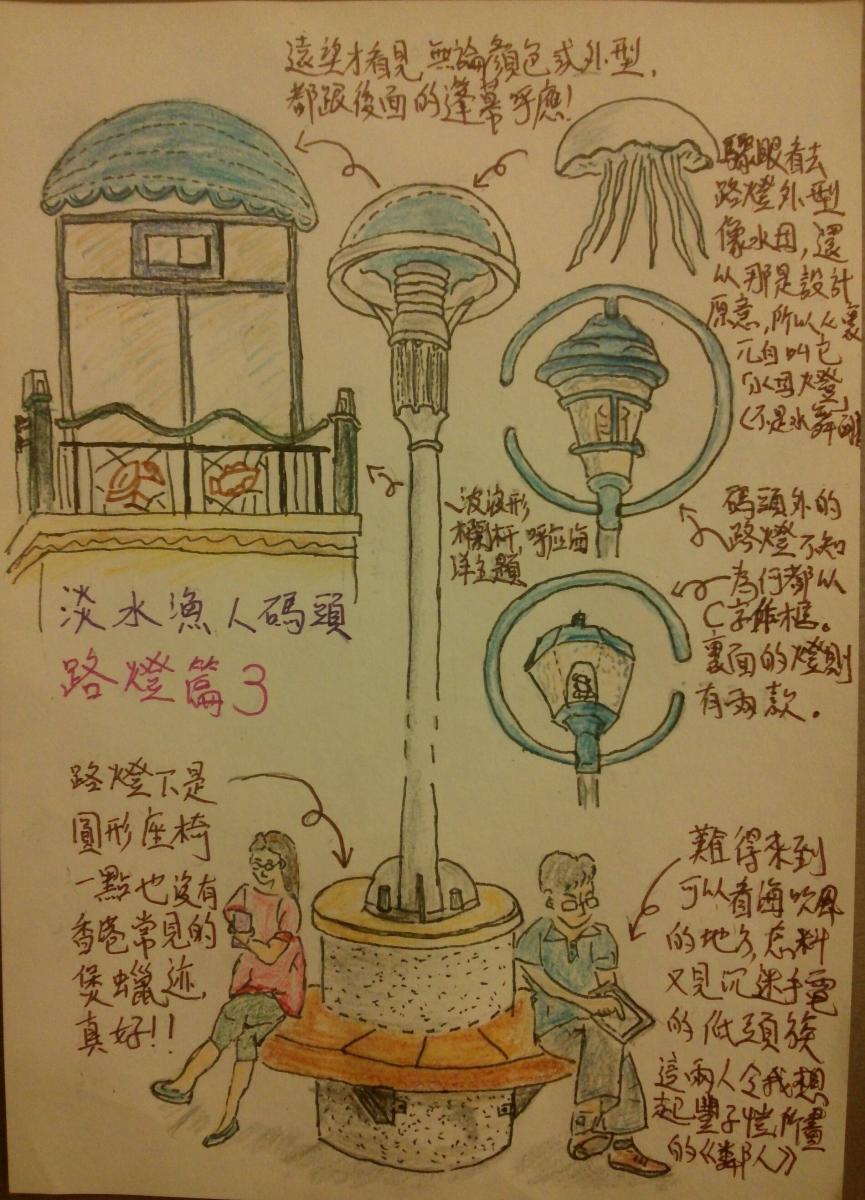
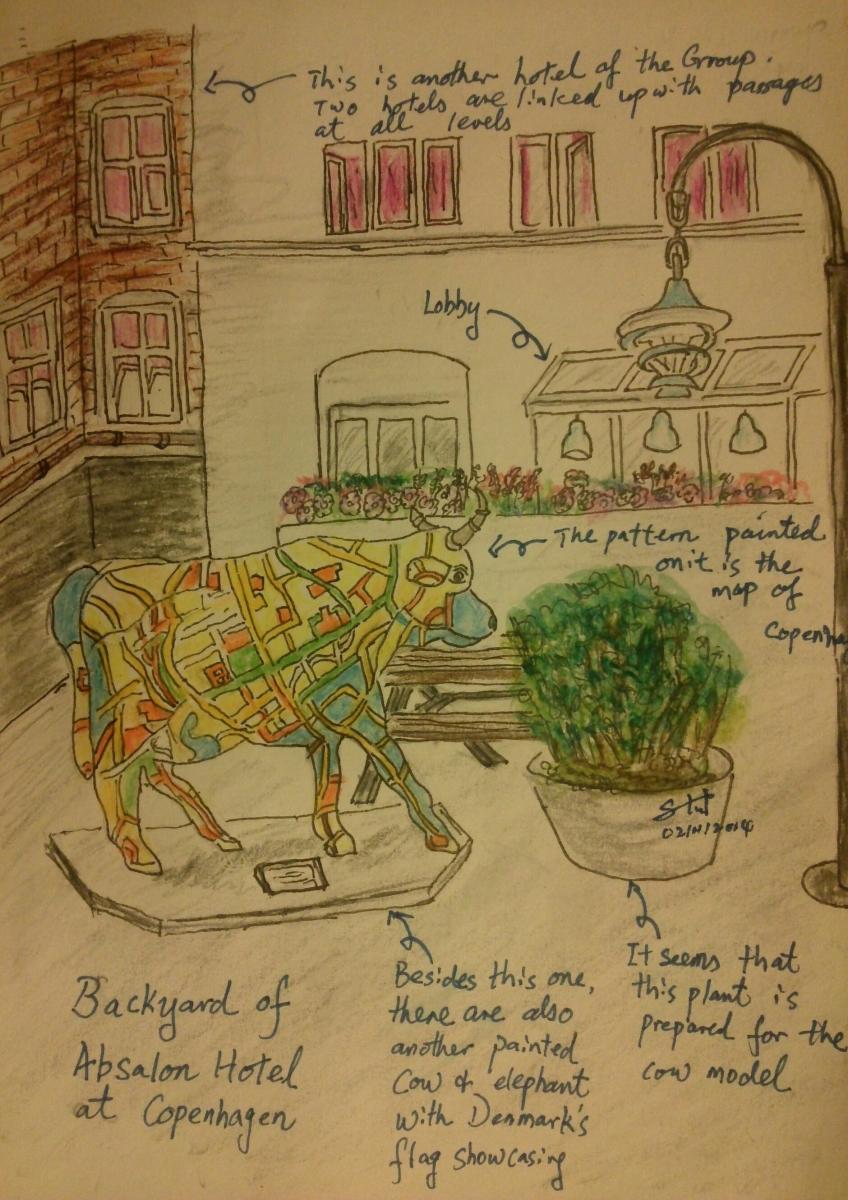
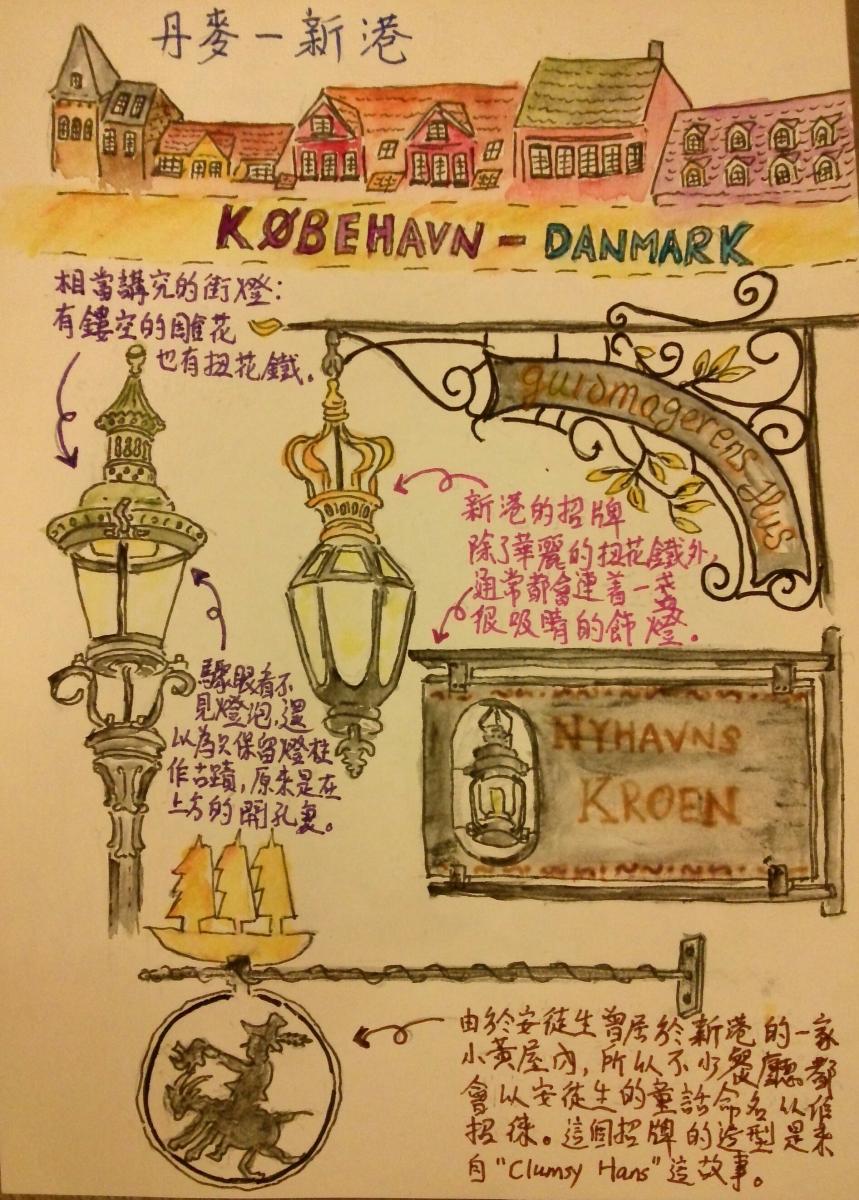
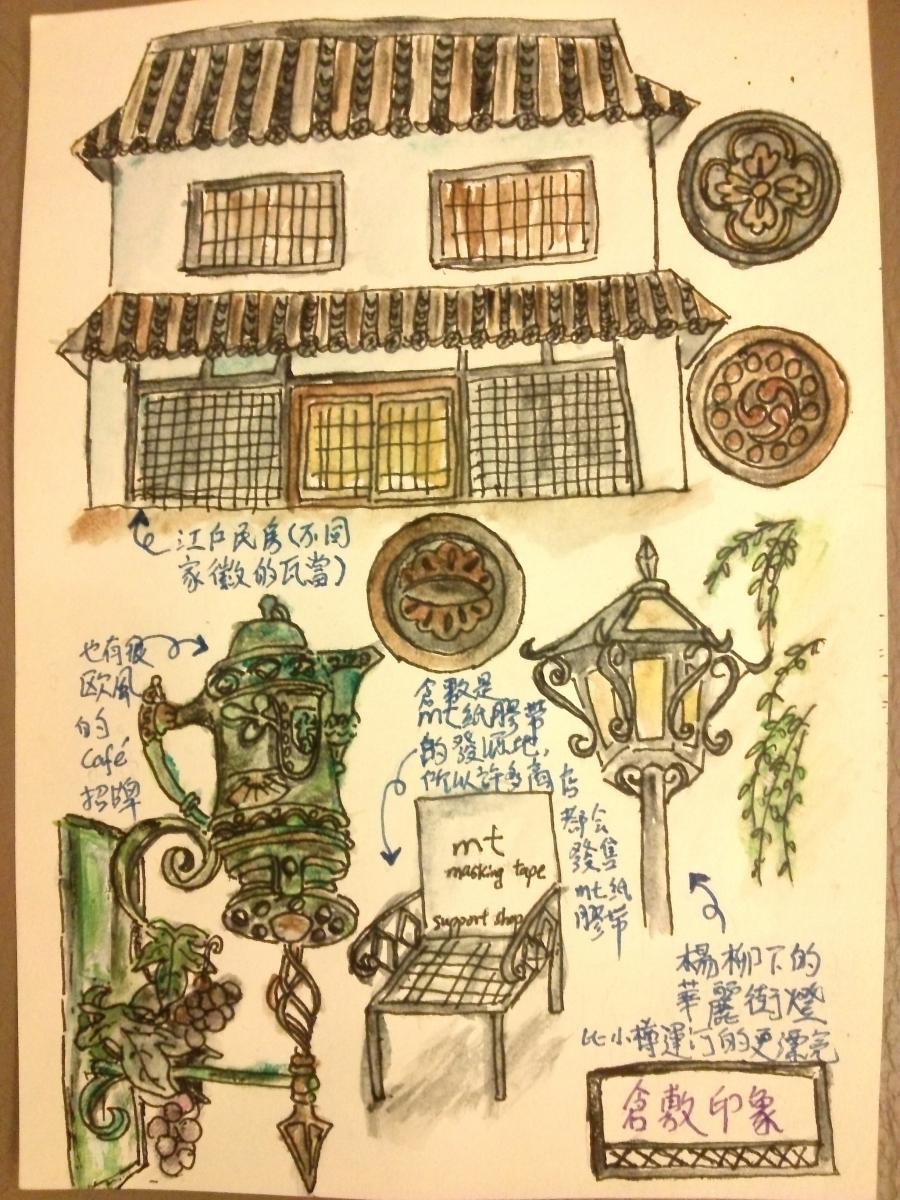
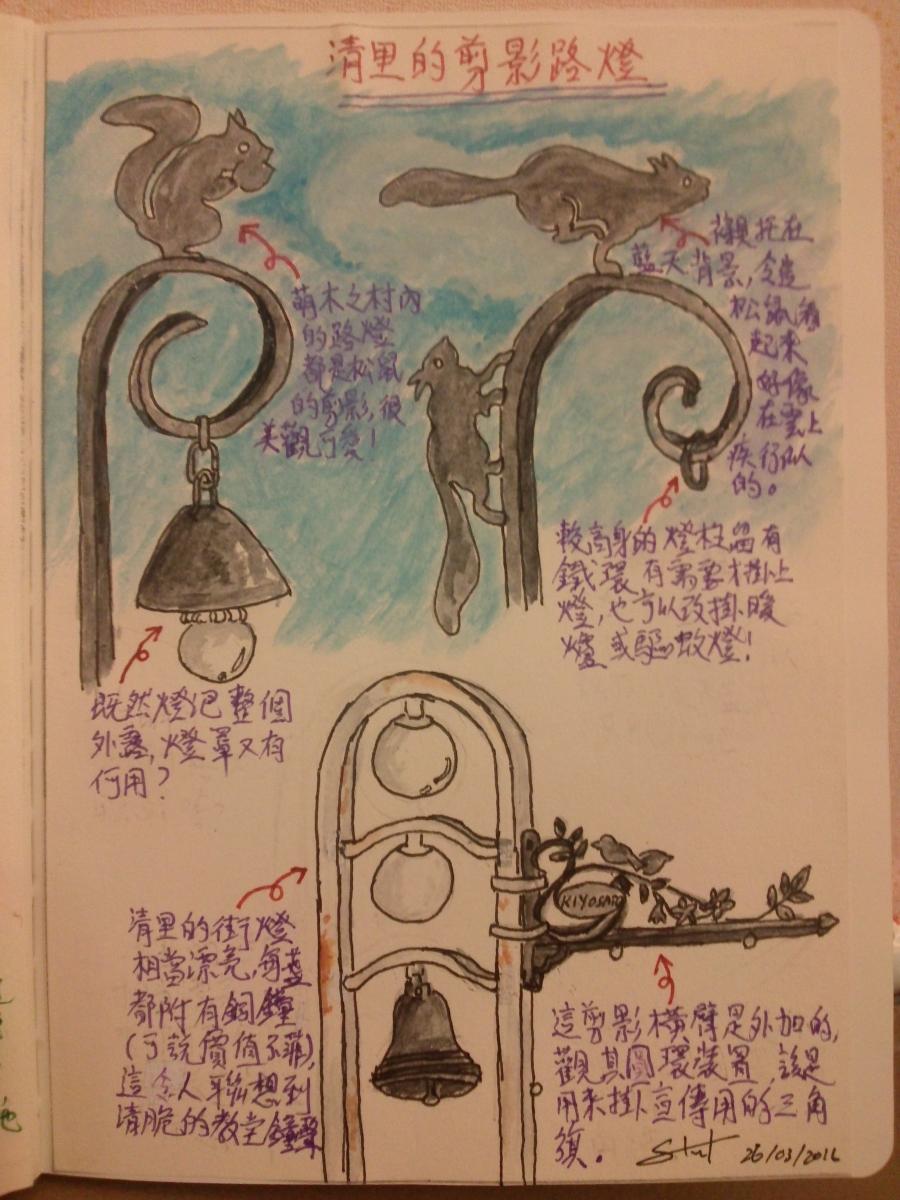
You can see from the above, when I travel to a foreign city, I can’t help observing its design of street light. Originally, I just regard these drawings as the records of observation, when they are placed together, I keep recollecting my passions arouse by these street lights: some of the designs are colonial injections, some elegant decorations aim to reveal the local traditional craftsmanship for tourism, while the comparatively plain style of Hong Kong street light acts as the gesture of its cultural practicality, a whim of writing a long prose about street lights flashed across my mind and finally it was published together with the drawings. The chief editor of the magazine reflected that many readers regarded the prose as a new genre like travelogue.
3. What are you currently reading right now? Are you reading for research or pleasure?
I always create various tinder for reading. Since I am now completing my Ph.D. thesis, I certainly have to read for research, for me, it is not a torture but one of the origins of my pleasure. I really enjoy digging up new implications from canonized stuffs. For the past few years, I read mainly for research, my thesis topic is “Modern Chinese Poetry and Modernity 1917-1949”, so I have read many poems in the reformatory era with “May-fourth movement”. However, when I get stuck, I will read for my interests, choosing some masterpieces which can inspire me to do the similar creative writing. For instance, if I want to write a long poem, I will read “The Sunstone” of Octavio Paz, one the contrary, if I am writing some lively poems, then I will review Philip Larkin’s collection.
Recently, I am reading a well-recognized Taiwanese essayist Chung Yee Man (鍾怡雯), since she is from Malaysia, I focused on her “nostalgia” revealed, besides, I also interested in her two collections of critics on different essayists, sketching out their traces of influences, maybe it is not new in western arena of critics after Harold Bloom but it is rare in the genre of Chinese prose.
4. What is one thing the readers and writers of Iowa City should know about you and your work?
One of the consultants of my sponsor, The Robert H. N. Ho Family Foundation, reminded me to get my “unique magnetic field” well-prepared, so that I can easily match with others. I therefore start thinking of the characteristics of mine. Finally, I find that my identity of being a writer as well as an editor is quite unique in the history of IWP. T.S. Elliot had said that: “A good writer most likely is a good editor as well, however, a good editor probably won’t be a good writer”. I am certainly not convinced, I have served in Oxford University Press for 17 years, the working experiences nourish me to polish my own work with stronger editorial mindset until they reach the crests of an authentic publishing standard. The mutual enhancement of writing and editing skills exactly is one of the cynosures of the course “Editing and Publishing” designed and conducted by me in department of Humanities and Creative Writing of Hong Kong Baptist University. Also, the knacks of composing the topographical writing are also extracted from my editorial skills. Henceforth, this double-sided identity appears like Bruce Lee’s nunchuks which make me at least look like well-equipped.
5. Tell us a bit about where you are from -- what are some favorite details you would like to share about your home?
I am from Hong Kong. When I come across your ask of the favorite details of my home, I can’t help drowning myself into contemplation and anxieties. At last, Walter Benjamin's elaboration on the painting of “Angel of History” flashed across my mind:
This is how one pictures the angel of history. His face is turned toward the past. Where we perceive a chain of events, he sees one single catastrophe which keeps piling wreckage and hurls it in front of his feet. The angel would like to stay, awaken the dead, and make whole what has been smashed. But a storm is blowing in from Paradise; it has got caught in his wings with such a violence that the angel can no longer close them. The storm irresistibly propels him into the future to which his back is turned, while the pile of debris before him grows skyward. This storm is what we call progress.
The term “progress” is ironic that capitalism regards the past calamities as the opportunity costs of future progress. Just like the “Angel of History”, Hong Kong people live in the gap of the sublime in the historical stream and the trifling beauty in our daily modern live, contriving to steer clear of both extremes with our frequent “turn” of our back in the storm of “progress”.
***
Thank you, Stuart!
Check the IWP website for events that will include Stuart Lau throughout the residency.